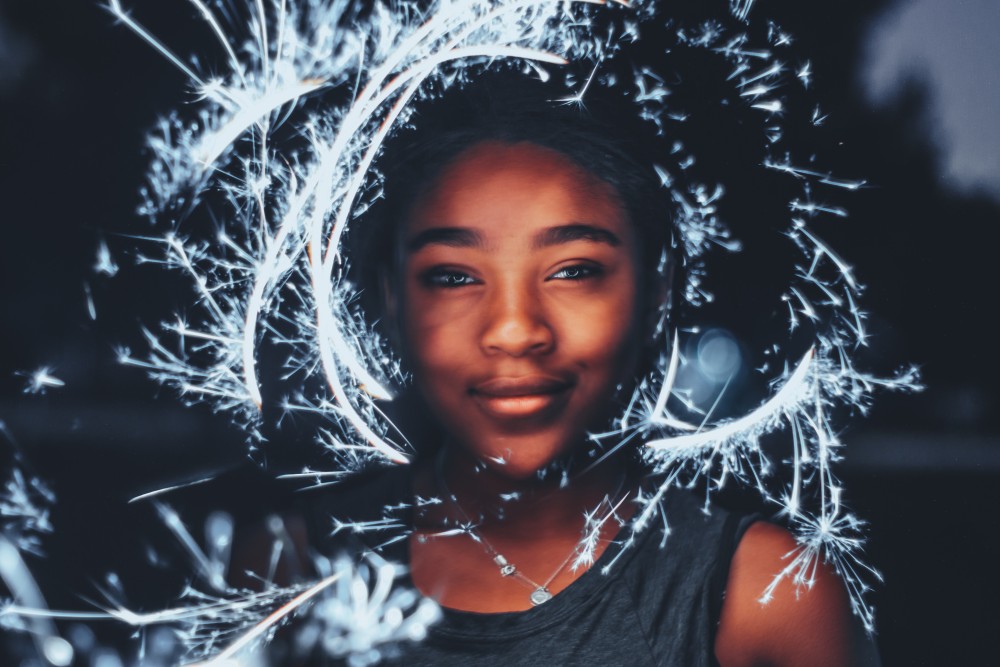The work of reconstruction, 50 years after Martin Luther King Jr.
Of the many absurdities around race and hatred that still exist in our culture, Trump may be the least of them.

“Why does Trump hate black people so much?” My daughter’s friend Lily posed this question a few weeks ago while they were playing together after school. It wasn’t an abstract question intended to make a political statement. It was personal, born of a six-year-old girl’s confusion about the realities of racism. Lily is black, so at least on some level she was also asking “why does the President of my country hate me?”
Whether Trump actually hates black people fades beneath the layers of absurdity Lily’s question reveals. It’s absurd to think that a national politician would have any feelings whatsoever about a particular first-grader living in Skokie, Illinois, let alone a feeling as powerful as hate. (Indifference, sure. Superiority in an abstract sense, probably.) It’s also absurd to think that Trump only hates black people when the reality is that he seems to despise much of the American public: black, Jewish, LGBTQ, immigrant, poor, liberal, Muslim, disabled, Latino, menstruating, smarter than him, dumber than him, and . . . well, the list could go on.
But the most absurd aspect of Lily’s question is the idea that only Trump hates black people. Asking why one very famous hater hates black people, as heartbreaking as it sounds coming from the mouth of a black child, risks obscuring the reality that all of America is structured around the systemic exploitation of black people. From the days of slavery to Jim Crow, from redlining to the white nationalism that’s gaining a voice in some circles today, our social and economic systems are built on the abuse of black people. Lily could just as honestly have asked, “Why did my country hate black people so much, and why does it still?” But maybe that truth is too much for a six-year-old heart to bear.
Perhaps I’m being too pessimistic. As we commemorate the 50th anniversary of the murder of Martin Luther King Jr., I’ve been reading some new books about his life, death, and legacy. And some of what I’ve read offers reasons for hope. King was killed 100 years after the post-slavery period known as Reconstruction, and the civil rights movement he helped lead is often called the Second Reconstruction. If it took America 100 years to get from the first Reconstruction to the Second, perhaps I should be happy that the period we’re in now, which William Barber calls the Third Reconstruction, only took 50 years to arise. Perhaps the Fourth Reconstruction will occur in only 25 years. And the Fifth, 12.5 years after that?
But the fact that I place my hope in increasingly frequent future reconstructions means that a lot of edifices still need to be torn down and rebuilt before I could even consider saying to Lily, “No, sweetheart. Nobody hates you because of the color of your skin. Our country was built on the stolen labor of people whose skin looked like yours, but we’re past that now: we’ve repented, paid reparations, and rebalanced everything.” After reading Michael K. Honey’s To the Promised Land, which shows how King’s work with labor unions was an integral part of his civil rights work, I’m fairly convinced that capitalism in America is too deeply entrenched in economic, racial, and gender inequalities ever to find its way out. After reading Joseph Rosenbloom’s Redemption, which gives a close-up look into King’s final 31 hours, I’m fairly convinced that goodness is not always stronger than evil—at least not in this world, where racist hatred, easy access to guns, and a series of lucky breaks made it possible for James Earl Ray to assassinate King just as the Poor People’s Campaign was getting underway. After reading Jason Sokol’s The Heavens Might Crack, I’m fairly convinced that the current phenomenon of unarmed black men being fatally shot because their bodies are perceived as dangerous stands in continuity with the white fears that King faced until the moment of his death.
So where does that leave Lily, a little black girl who’s coming of age in the era of #blacklivesmatter and #MeToo? If she goes on to do amazing things in the future—despite the odds being stacked against people of her gender and race—will it be because her parents are homeowners and she attends a highly-rated public school? Those things will help. But I think Lily is also likely to do amazing things in the future because she’s brave enough to articulate the tough questions. Why does Trump hate black people so much? There’s a lot of wisdom and courage in that question. I’m too much of an Augustinian to say for sure that the arc of the moral universe is bending toward justice (a trajectory that even King believed to be impossible apart from divine intervention). But if it can bend in this world, I suspect it bends a little more when people like Lily speak their minds and people like me stop and listen.
At age six, Lily is feisty, smart, creative, and self-assured. When she grows up, I’m thinking she might become the next Brittney Cooper, or the next Morgan Jerkins, or the next Austin Channing Brown. Or maybe she’ll be more like Tarlease Matthews, or Johnnie Tillmon, or Claudette Colvin—not in the national limelight and probably unknown to most people, but quietly, steadily doing the everyday work of deconstructing and reconstructing. These are the people whose words and actions I’ll be celebrating alongside King’s as I commemorate the summer of ’68. I’ll also celebrate the many other black women who are courageously naming the absurdities of our culture’s intertwined injustices. And Lily, for doing the same.





